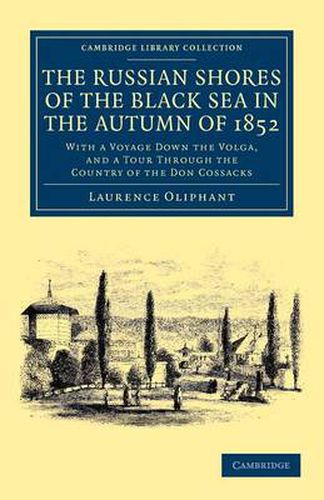Readings Newsletter
Become a Readings Member to make your shopping experience even easier.
Sign in or sign up for free!
You’re not far away from qualifying for FREE standard shipping within Australia
You’ve qualified for FREE standard shipping within Australia
The cart is loading…






The British diplomat and writer Laurence Oliphant (1829-88) was the author of travel diaries and novels, including the very successful Piccadilly (1870). A keen traveller, he worked as a correspondent for The Times during the Franco-Prussian War (1870-1) and served as Secretary to British Diplomat Lord Elgin in Canada, China and Japan. This book is a narrative of the journey Oliphant made to Russia as a young man, with his friend Oswald Smith. Its publication in 1853 coincided with the beginning of the Crimean War, turning the book into an immediate success. From the splendour of mid-nineteenth-century St Petersburg, to the annexation of the Crimea, and the international consequences of Russian foreign policy for Europe, this illustrated book is also full of witty anecdotes and captivating descriptions. Very influential in its time, it remains an important resource for cultural and political historians.
$9.00 standard shipping within Australia
FREE standard shipping within Australia for orders over $100.00
Express & International shipping calculated at checkout
The British diplomat and writer Laurence Oliphant (1829-88) was the author of travel diaries and novels, including the very successful Piccadilly (1870). A keen traveller, he worked as a correspondent for The Times during the Franco-Prussian War (1870-1) and served as Secretary to British Diplomat Lord Elgin in Canada, China and Japan. This book is a narrative of the journey Oliphant made to Russia as a young man, with his friend Oswald Smith. Its publication in 1853 coincided with the beginning of the Crimean War, turning the book into an immediate success. From the splendour of mid-nineteenth-century St Petersburg, to the annexation of the Crimea, and the international consequences of Russian foreign policy for Europe, this illustrated book is also full of witty anecdotes and captivating descriptions. Very influential in its time, it remains an important resource for cultural and political historians.